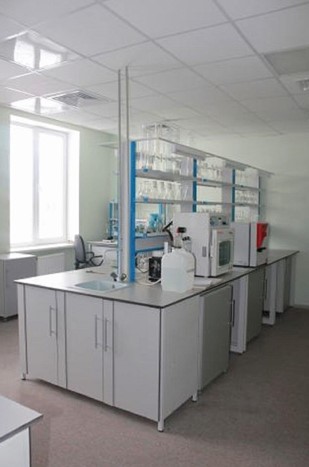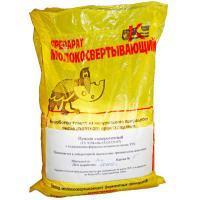Russia bought more than 160 aircraft from foreign lessors
Russian airlines bought 165 aircraft from their foreign lessors in 2023 and early 2024 , RBC calculated based on open data and source data. The limit of funds allocated for these purposes from the National Welfare Fund (NWF) is 300 billion rubles. exhausted, a source in the Cabinet of Ministers said.
The purchased aircraft represent about 40% of the imported fleet (approximately 400 aircraft) that belonged to Western lessors and remained in Russia, despite the sanctions introduced in 2022 and the demands of foreign lessors to return the aircraft.
The press service of the Ministry of Transport declined to comment. RBC sent a request to the Ministry of Economic Development.
Why do they buy planes?
The buyout is necessary to remove foreign registrations from aircraft so that their owners (lessors) do not interfere with the operation of aircraft on foreign routes. Ownership rights to the purchased vessels are transferred to the state insurance company NSK, which owns the leasing company NLK-Finance. Through the latter, aircraft are again leased to Russian airlines.
The NSC is controlled by the Federal State Unitary Enterprise “Administration of Civil Airports”, which is subordinate to the Federal Air Transport Agency. Funds from the National Welfare Fund for the redemption were allocated as a preferential loan at a rate of 1.5% for 15 years.
Who bought and how many planes
The largest Russian airline group, Aeroflot, has settled disputes with its lessors for a total of 93 aircraft, RBC has calculated. The first batch of NWF funds was purchased back in December 2022 - ten wide-body Boeing 777s. Then, over the course of the year, the group bought the aircraft in several more tranches: in September - 18 aircraft and five engines, in October - 30 aircraft (in three transactions, the largest - with SMBC Aviation Capital for 17 aircraft), in December - 28 aircraft. On Friday, February 16, Aeroflot completed settlements for seven more aircraft with two groups of lessors. “The agreements for these transactions were concluded at the end of 2023, and the technical stages were completed in 2024,” the company said.
S7 Airlines bought 45 aircraft in one tranche in December last year, the company reported. At the same time, Ural Airlines (19 aircraft of the Airbus family) also announced a buyout.
RBC Pro development program Master 52 skills in a year The development program is a convenient tool for continuous learning new skills for a successful career What Henry Ford was wrong: 6 bad tips from world business gurus Itzhak Adizes: the main management problem in Russian companies is silence There is no point in doing it for months superfood: 6 rules of the founder of “Vkusville” Why and how to establish contact with your body and what does a career have to do with it Think like Jeff Bezos . What algorithms do successful businessmen use? Why challenges paralyze some managers and motivate others. Sprinkle ashes on your HEAD and get out of sight: what harms your reputation How to manage attention during the day - advice from a professor from the usa How management thinking errors brought Chrysler and Polaroid into trouble Alchemist or strategist: who you are as a leader and how this knowledge will help the business Why are you so scared to delegate. The Economist explains How to make a plan so you don't quit halfway: 6 stepsAnother eight medium-haul Airbus A319s were transferred into Russian ownership by the Far Eastern airline Aurora, an RBC source familiar with the deal said. Five of these vessels, previously registered in Bermuda, were excluded from this register in the period from October 2023 to January 2024, an RBC correspondent was convinced. This means that they are “freed” from double registration (now registered only in Russia) and can fly abroad freely.
Another private airline, the charter airline iFly, applied for government support to buy back three of its planes, but it did not receive the NWF money , and, according to an RBC source, the buyout never took place. The source also noted that the Ministry of Transport has not yet issued a regulatory act with criteria for the distribution of NWF funds for repurchase between different airlines.
The ships were purchased not only with funds from the fund, but also with the money of the airlines themselves, Aeroflot CEO Sergei Aleksandrovsky said last year: “As part of the settlement, 300 billion rubles will be allocated from the National Welfare Fund for all airlines. But with the condition that air carriers will also use their net profits for settlement. Pobeda Airlines received 15 billion rubles. net profit, which will be used in full for insurance settlements on the group’s aircraft.” Aeroflot itself generated a loss of 40.5 billion rubles. according to RAS for 2022.
As Kommersant calculated, S7 and Ural Airlines received about 30–40 billion rubles between them. from the National Welfare Fund. Another 34 billion and 13.4 billion rubles. Accordingly, they paid extra from their profits. RBC's source knows that Aurora also used funds from profits for the buyout (the company's profit under RAS in 2022 amounted to 1.98 billion rubles).
In general, the purchased number of aircraft is sufficient to meet the demand for international transportation, notes Oleg Panteleev, executive DIRECTOR of the Airport. “Moreover, the problem of “double registration” of ships did not exist on all international routes.” The expert added that the government’s priority is to meet the demand for transportation throughout Russia.
Further allocation of government funds for the buyout, which has not yet been completed, is unlikely, Panteleev believes. “In the future, this item of expenditure (for redemption) will clearly not be in the first place for the government. In order for new money to be allocated, either the problem of a lack of transport capacity on international routes must arise, or the state must have an excess of financial resources. Neither one nor the other has been seen yet.”
The expert notes that it is now more important to solve the problem of saturating the fleet with domestic aircraft. This task is financially very intensive, but its solution ensures independence from sanctions and significant positive effects for both the economy and the budget, Panteleev concluded.



























































